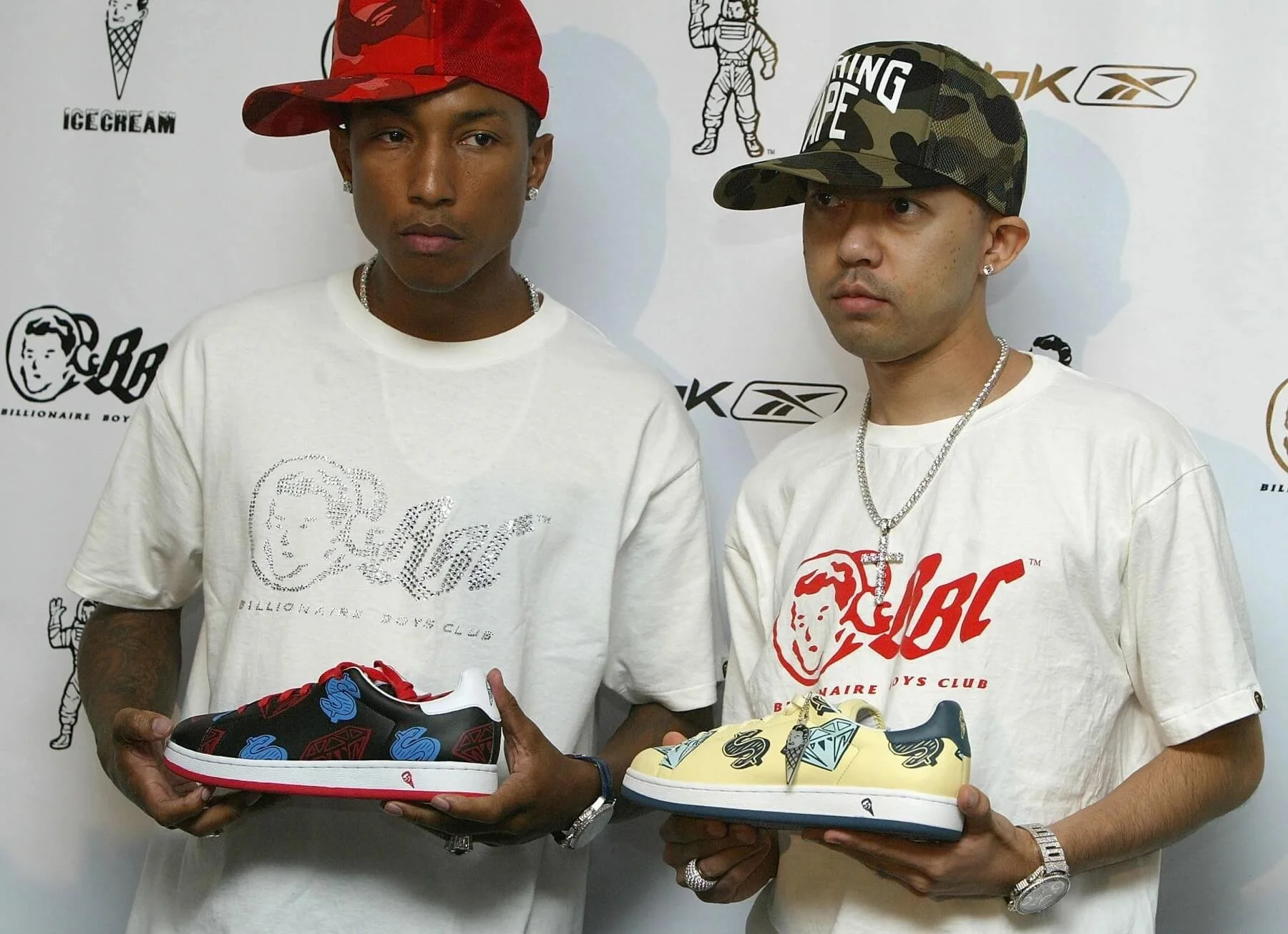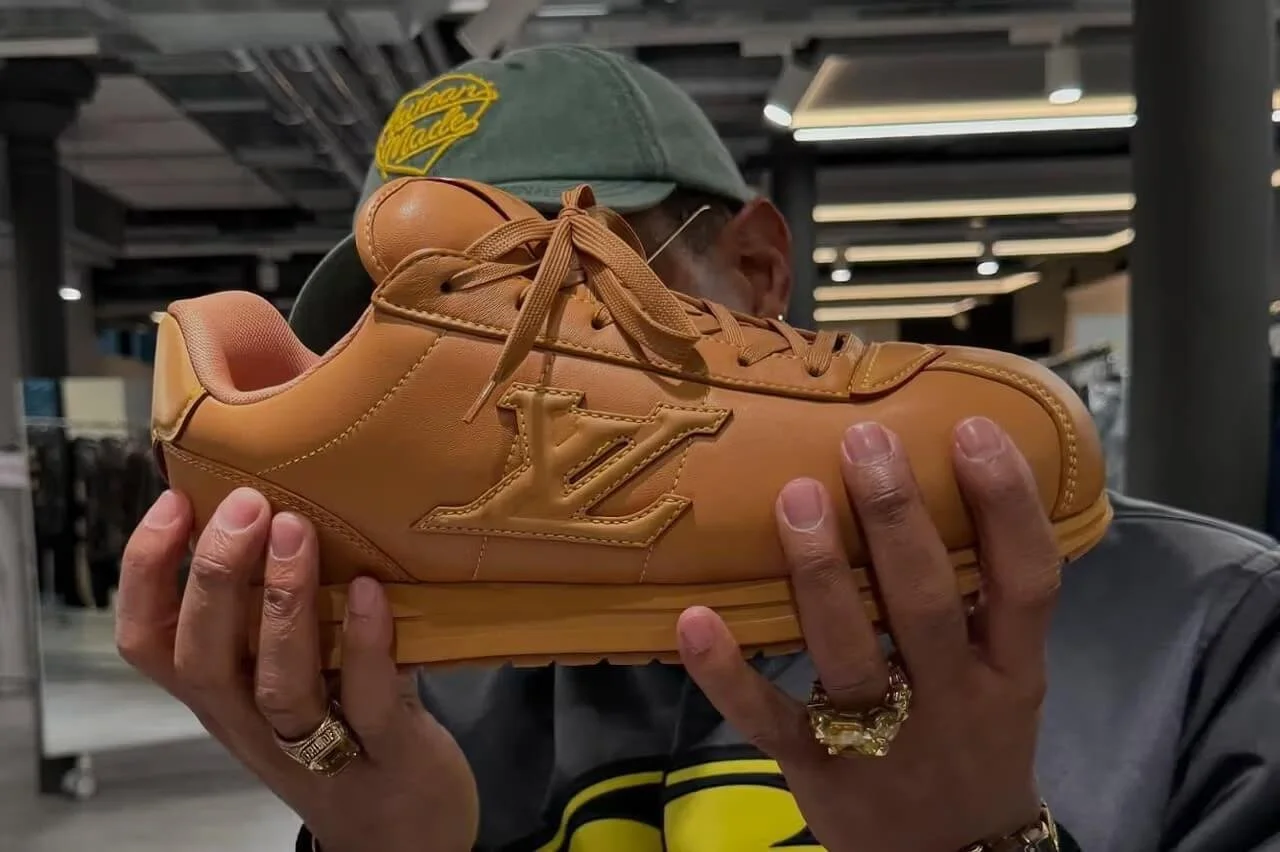The Myth of Pharrell: Why the Fashion World Needs to Rethink Its Golden Boy
When Pharrell Williams was appointed as the creative director of Louis Vuitton Menswear, it was hailed as a cultural reset. The man behind the Billionaire Boys Club and decades of trend-defining style was stepping into the throne of one of fashion’s most coveted houses. The world cheered. Headlines declared it a genius move. But I’m here to ask the question no one else seems willing to touch: is Pharrell really the fashion revolutionary we all think he is?
Let’s be clear—Pharrell is an icon. His music, his influence, his ability to shape pop culture are undeniable. But when it comes to his supposed fashion genius, I’m not so sure. Strip away the celebrity sheen, and what’s left is a man whose style feels more like a curated collage of other people’s visions than an authentic, groundbreaking narrative of his own. We’ve been so dazzled by his cool factor for decades that we’ve stopped asking: where’s the originality?
January 28. Written by Ryan PackerThe Billionaire Boys Illusion
Take Billionaire Boys Club, his signature streetwear line co-founded with Nigo, the mastermind behind A Bathing Ape. Sure, BBC was cool in its heyday, but let’s not pretend it didn’t lean heavily on the aesthetics of its time—a mash-up of Japanese streetwear and hip-hop luxury. Pharrell’s name gave it credibility, but the line’s success was more about timing and hype than groundbreaking fashion. BBC thrived in an era where anything tied to skate culture and luxury fusion was an instant hit, but it never truly challenged the status quo.
And that’s the thing about BBC—it’s a brand that existed perfectly in its moment but failed to evolve with the times. Today, it feels like a relic of a bygone era, a nostalgia piece rather than a relevant player in the contemporary streetwear conversation. Pharrell gets credit for being a cultural tastemaker, but when we examine his track record, it becomes harder to see him as a forward-thinking innovator. Instead, it’s more like he’s been great at riding waves others created.
Déjà Vu Sneakers
And now, let’s talk about those Louis Vuitton butter-soft sneakers Pharrell debuted. On first glance, they’re everything you’d expect from a high-fashion sneaker: luxurious materials, sleek silhouettes, and that unmistakable Louis Vuitton branding. But look closer, and you can’t shake the feeling that you’ve seen this design before. The resemblance to Pharrell’s Ice Cream sneakers from the early 2000s is undeniable. Chunky soles, playful energy, and bright colors—it’s all there, just with an LV twist.
Sure, the craftsmanship and materials have been elevated for the luxury market, but is that really enough? Pharrell isn’t giving us a new vision for Louis Vuitton; he’s giving us a high-budget remix of his greatest hits. The sneakers feel less like a bold step forward and more like a calculated attempt to cash in on nostalgia. Pharrell’s debut isn’t rewriting the rules of luxury fashion; it’s playing it safe by leaning on what already worked decades ago.
Style vs. Substance
Pharrell’s personal style has always been his calling card, and there’s no denying his ability to make anything look effortlessly cool. From oversized hats to tailored shorts, his fits have been a masterclass in individuality. But there’s a difference between wearing great clothes and creating them. Pharrell thrives on curation, on pulling together elements that already exist and making them feel fresh. But curation isn’t the same as creation, and fashion needs creators who can build something new from the ground up.
This is where Pharrell’s legacy starts to unravel. He’s brilliant at tapping into the zeitgeist, but when it comes to pushing the industry forward, his work often feels hollow. It’s style over substance, aesthetics without depth. The fashion world needs innovators who can break the rules, not just remix them. And while Pharrell’s vision is undeniably cool, it doesn’t feel like the game-changer the industry keeps insisting it is.
The Louis Vuitton Question
Pharrell’s Louis Vuitton debut as a whole raises similar questions. Was it luxurious? Of course—it’s Louis Vuitton. The opulence was there in spades, from the oversized silhouettes to the loud graphics to the impeccable tailoring. But was it groundbreaking? Not even close. It felt like Pharrell took the same tried-and-true formula he’s been using for years and dressed it up with a Louis Vuitton price tag. It’s undeniably polished but lacks the daring vision that true innovation demands.
Compare this to Virgil Abloh’s era at Louis Vuitton. Virgil wasn’t just designing clothes; he was telling a story, breaking barriers, and creating a cultural shift. He redefined what streetwear could mean in the luxury space, blending personal narratives with bold experimentation. Pharrell’s approach, by contrast, feels like a collection of greatest hits—a safe, predictable move for a brand that used to take risks.
The Cult of Personality
So why does the fashion world continue to worship Pharrell? Because we’re hooked on the cult of personality. Pharrell isn’t just a designer; he’s a brand. His agelessness, his charisma, his ability to stay relevant across decades—it’s intoxicating. He doesn’t just sell clothes; he sells a lifestyle, a feeling, an aura of effortless cool. And we’ve all bought into it without questioning whether the product actually matches the hype.
But it’s time to start asking harder questions. The fashion world’s obsession with celebrity has created an echo chamber where influence is mistaken for innovation. Pharrell isn’t selling us groundbreaking fashion; he’s selling us himself. And while that works in the short term, it doesn’t build the kind of legacy fashion needs to thrive in the future.
The Bigger Conversation
This isn’t about tearing Pharrell down. He’s an icon, a cultural bridge between music, fashion, and art, and his contributions to pop culture are undeniable. But it’s time to stop conflating celebrity with creativity. If we want fashion to evolve, we need to demand more from the people at the top. Star power alone isn’t enough.
Fashion deserves creators who take risks, who challenge the status quo, and who build something that feels wholly new. Pharrell might be the polished package, but when it comes to redefining the fashion landscape, maybe he’s not the revolutionary we’ve been led to believe. And maybe that’s okay—but let’s stop pretending he’s something he’s not.
.--. .-.. .- -. -. -- .- --. .- --.. .. -. .



